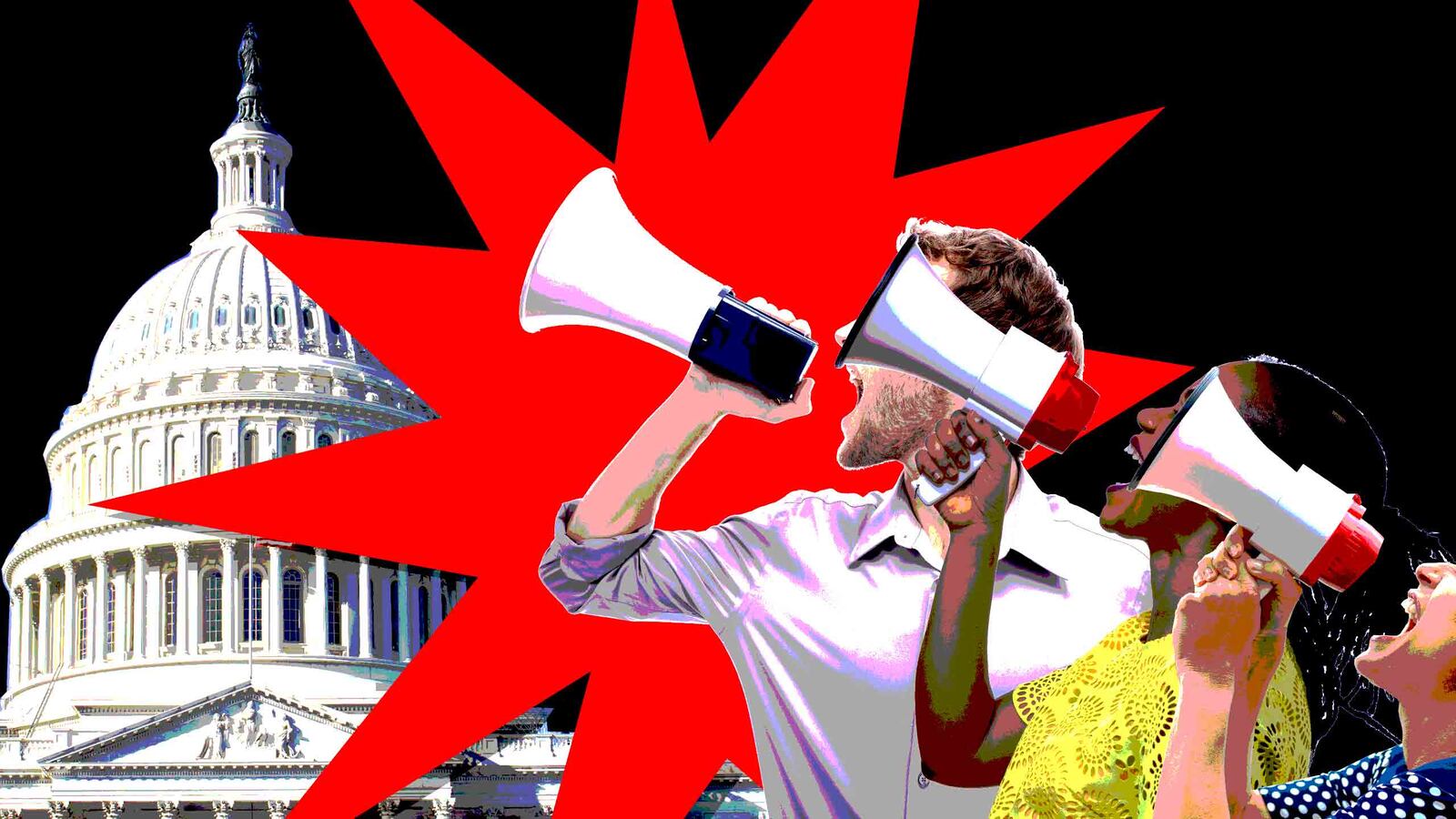“Go West, young man,” New York Tribune editor Horace Greeley famously urged soldiers coming home from the Civil War and wondering what to do with the rest of their lives. In that spirit, here’s my politically corrected advice to millennials who want to change the world: “Go local, young gender-unspecified person.”
Don’t look to Washington to remake American society from the top down. And don’t assume that real political change can only come through massive expansions of federal power.
Yet many young progressives are falling into that trap. Beguiled by the radical ring of “democratic socialism,” they are pushing an unabashedly statist agenda—nationalized health care, “free” college tuition, federally guaranteed incomes and jobs, and heavy-handed regulation of private enterprise. Only with a “bold” program of centralizing power, they insist, can Democrats forge new majorities and return to power.
Democratic voters, however, don’t seem convinced. In recent Midwest primaries, left-wing candidates endorsed by Sen. Bernie Sanders and Alexandria Ocasio-Cortez, the new socialist idol, fared poorly. True, Tallahassee Mayor Andrew Gillum, running as a Berniecrat, pulled off an upset in Florida’s gubernatorial primary last week. The real question, however, is whether Gillum’s narrow win enhances Democrats’ chances of electing a governor of this swingiest of swing states. Outside college towns and safely blue urban districts, most Democrats in competitive races are giving the DemSoc agenda a wide berth.
For one thing, it comes with a stupendous price tag—at least $42 trillion over 10 years, according to one plausible estimate. That’s a problem if you’re trying to appeal to tax-averse and fiscally conservative voters in red and purple states.
Beyond costs is the dramatic expansion of Washington’s role in the economy. If you thought the initial public backlash to Obamacare was bad, wait until 156 million Americans with job-based coverage are told they have to give it up and pay higher taxes. And even if Washington knew how to create tens of millions of public sector jobs without undermining private labor markets, those jobs will look a lot like “welfare” to the working class voters they are supposed to appeal to.
This underlines the central flaw in the left’s theory of political change—concentrating more decisions and power in Washington. At a time when the federal government barely seems capable of conducting routine business, charging it with the sweeping transformation of our economy and society is a pipe dream. The problem isn’t just partisan paralysis, it’s that Washington’s governance model—hierarchical, rule-bound and controlling rather than collaborative—is obsolete in the digital age.
Progressives do need bigger and bolder ideas for accelerating economic growth and spreading opportunity to the people and places left out of today’s tech-driven prosperity. But they also need a credible vehicle for translating those ideas into reality. If you want to drive America into a bright new future, you’d best show up in a Tesla, not a DeSoto.
Fortunately, an alternate model for progressive governance is emerging in cities and metropolitan areas across the country. What’s taking shape in metro America is not only more effective and accountable governance, but a different way of solving public problems altogether. Says Bruce Katz, co-author with the late Jeremy Nowak of The New Localism:
“Cities are now dealing with some of the hardest challenges facing our society: social mobility, competitiveness, climate change, and more. The 20th century was very much about hierarchical systems; specialized, compartmentalized, highly bureaucratic. The 21st century is going to be networked, distributed, and led by cities.”
Katz and Nowak highlight “networked governance” that taps a broad array of civic actors—including universities, philanthropies, non-profits, and business groups as well as multiple local jurisdictions—to get things done. Local knowledge, cross-sector collaboration and unlocking private capital are key to the New Localism’s success.
Rather than reflexively turning to Washington, Democrats should get behind this new vision for renewing American democracy from the ground up. It’s smart politics, since the public has far greater confidence in local government than either the states or Washington. That’s one reason a slew of present and former Democratic mayors—Mitch Landrieu of New Orleans, Eric Garcetti of Los Angeles and Julian Castro of San Antonio – are thinking about jumping from City Hall to the White House.
But weaning the party from its Washington-tropic habits won’t be easy. During the 20th century, Democrats catalyzed three great waves of political centralization. In the Progressive era, Woodrow Wilson orchestrated a flurry of progressive reforms that included the federal income tax, the Federal Reserve System, national child labor laws, and tougher anti-trust regulations. FDR’s New Deal expanded the scope of federal power dramatically, by launching big public works and relief programs; regulating prices and wages; nationalizing income support and labor protections; and, establishing Social Security. In the 1960s, the Great Society saw Washington assume responsibility for problems that had previously been left mainly to the states and local authorities: racial injustice, poverty, illness, gender inequality, urban decay, educational inequity, and pollution.
Propelling each of these waves was the conviction that nationalizing policy responses to the nation’s problems would best serve progressive purposes. It was very often true. Who would want to go back to a time when giant monopolies crushed economic competition and bought state legislatures; when the pernicious doctrine of “states’ rights” sanctioned racial subordination; or when industries produced unsafe food and polluted our air and water with impunity?
But we live in a different world. Power today flows upwards and downwards out of Washington. As Katz and others have documented, metro regions—symbols of economic and social dysfunction only a generation ago—are now the nation’s laboratories for public innovation. This upsurge of local initiative and creativity illustrates the genius of America’s system of flexible federalism: If one level of government falters, the locus of public problem-solving can and does shift to another.
At a time when public confidence in Washington is at low ebb—just 18 percent of Americans trust the federal government to do the right thing—progressives should not assume that the arrow of progress always points toward centralizing power. There are plenty of reasons to think it now points the other way.
Most obvious is the political impasse in Washington. The inability of our national leaders to forge consensus or compromise, especially on the most urgent challenges facing the country, has given rise to a new truism: the more dogmatic and tribalized our politics, the less productive our federal government.
What’s more, Washington is dead broke. Economic growth no longer generates a fiscal dividend that can be used to launch new public initiatives. That’s because the cost of maintaining the government’s cumulative commitments exceeds expected tax revenues.
Round after irresponsible round of GOP tax cuts, combined with automatic spending on entitlements, are relentlessly squeezing out room in the budget for new investments. That squeeze will only intensify as America grows older. Says Chicago Mayor Rahm Emmanuel, who left Congress to go into local government, “We’ve always said there’d be a day when all the federal government does is debt service, entitlements and defense. Well, folks, that day is here.”
After four generations of centralizing resources and political power, Washington really has grown too big, too sclerotic and too remote from the everyday problems of life. Saddled with ponderous, industrial-era bureaucracies and colonized by powerful interest groups adept at extracting “rents” from the commonweal, the federal leviathan is better at protecting the status quo than sparking progressive change.
Finally, and crucially, digital technology, networked organizations, and globalization have combined to blunt the effects of Washington’s traditional economic and fiscal toolkit. Economic competition now is global in scope, financed by global capital, not just our own savings, driven by rapid and disruptive innovation and organized around vibrant metro regions rather than nation-states. What these new economic units or “city states” need from Washington is not stovepiped programs, micro-prescription and standardized solutions, but more flexibility and resources to repair our economy and social fabric from the ground up.
Rather than emulate European-style statism, U.S. progressives should offer voters an indigenous and decentralized vision for effecting radical change. By driving decisions closer to the people, going local would buttress participatory democracy and help progressives remove the taint of elitism that hobbles them in middle America.
This isn’t a matter of eviscerating the federal government, as conservatives would like. Washington must continue to do what it is best suited to do: set fiscal and monetary policy; defend civil rights and liberties; make rules for immigration, environmental protection, and other cross-border issues, and take the lead on diplomacy and defense.
Nor does “progressive federalism” mean a preference for states over Washington. In fact, metro leaders complain that state governments often put bigger obstacles in their way than the feds. One example is a blizzard of “preemption” laws passed by hostile GOP-controlled legislatures to prevent local governments from raising taxes, or passing environmental or gun control ordinances.
What’s critical for progressives today is to restore public confidence in progressive government. That means empowering local leaders—mostly Democrats—who have become our most effective instruments of economic and social progress. By aligning their theory of change with the level of government voters trust most, Democrats can offer a fresh and more democratic vision for renewing America from the ground up.






